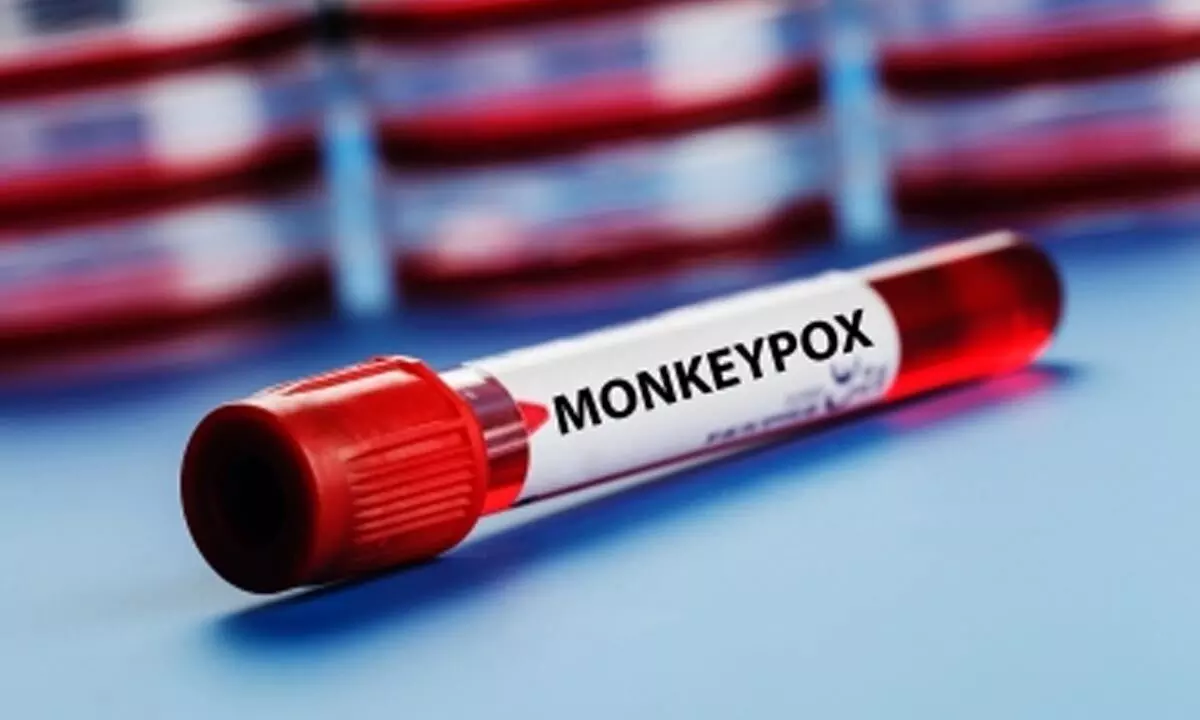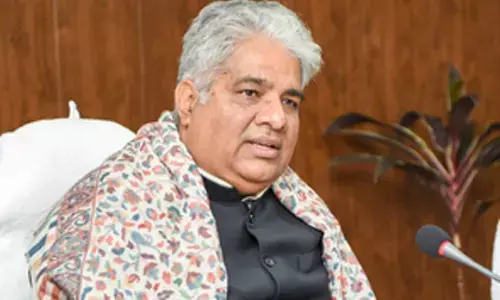Experts call for ‘early action’ against Mpox to help mobilise resources, tackle spread
Share :

‘Early action’ against Mpox (formerly Monkeypox) may be crucial to mobilise resources and tackle the spread of the deadly infectious disease, said health experts on Thursday, even as the World Health Organisation (WHO) declared a global health emergency for Mpox.
New Delhi: ‘Early action’ against Mpox (formerly Monkeypox) may be crucial to mobilise resources and tackle the spread of the deadly infectious disease, said health experts on Thursday, even as the World Health Organisation (WHO) declared a global health emergency for Mpox.
Mpox infections have spread across 13 African countries, including Congo, where 14,000 cases and 524 deaths have been reported, the WHO said.
It is the second time in three years that Mpox has reached emergency status.
The public health emergency of international concern (PHEIC) is the highest health alarm by the WHO.
Mpox is a viral zoonotic disease that was first identified in monkeys in research laboratories in the 1950s, and it was not until 1970 that the first human case was discovered.
An offshoot of Clade I -- Clade 1b -- is responsible for the recent surge in infections, the UN health body said.
Clade 1b of the Mpox virus is estimated to have jumped from animal to human as recently as September 2023.
“Unlike the previous clade, the current strain -- Clade 1b -- is spreading both among men and women through close and sexual contact. This time, children living in the household are also getting affected, and the death rate is higher than the 2022 outbreak,” Dr Rajeev Jayadevan, co-chairman of the Indian Medical Association’s National Covid-19 Task Force, told IANS.
“This means the virus has acquired the potential to spread more efficiently in multiple neighbouring countries, and an early call for action will not only mobilise resources to contain the outbreak in Africa, but also prepare the world to tackle global spread in case it occurred,” he added.
According to the latest WHO situation report on Mpox, India reported 27 laboratory-confirmed cases and one death between January 2022 and June 2024.
The report also noted that four new countries in Eastern Africa -- Burundi, Kenya, Rwanda, and Uganda -- have reported their first Mpox cases.
The Africa CDC has also declared a Public Health Emergency of Continental Security (PHECS). It reported that the suspected cases in the first half of 2024 have exceeded 17,000, representing a four-fold increase since 2022.
Infectious disease expert Dr Ishwar Gilada told IANS that the disease has no parallels with Covid-19.
“Mpox can cause fever, rashes, lymph node enlargement, and some people can get a systemic infection”.
“It is not spread by aerosols. There is an extremely remote possibility of its spread through droplets, or surfaces. Masks will not provide any protection from the Mpox,” said Dr Gilada, also a HIV/STD consultant, Secretary General People's Health Organisation-India and OMAG.
Calling Mpox a “21st Century’s sexually transmitted disease (STD)”, the expert said it is majorly sexually transmitted, with 99 per cent of cases seen among men who have sex with men (MSM).
Dr. Basavaraj S Kumbar, Consultant - Internal medicine, Aster Whitefield Hospital, Bengaluru, told IANS, that the disease typically begins with signs of flu -- fever, headache, muscle pains, and tiredness.
It then proceeds to “a unique rash which typically starts on the face and spreads to other parts of the body. This rash goes through different phases before it finally dries up,” Dr. Kumbar said. One thing that distinguishes Mpox from other viral infections is swollen lymph nodes, he added.
There is currently no proven treatment against Mpox. Jynneos and Bavarian Nordic vaccines can prevent Mpox, Dr. Gilada said, calling on India to develop its own vaccine, like SARS-CoV-2, the virus behind Covid-19 pandemic.
“India's strength in vaccine production should be positively exploited,” Dr. Gilada said.
Dr. Kumbar advised to avoid close contact with anyone displaying the symptoms, especially those with an unexplained rash. He also recommended good hygiene practices such as frequent handwashing using soap and water, and sanitising hands.







